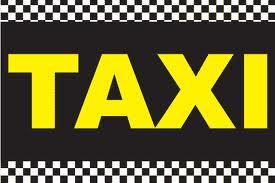It’s notoriously hard to organize cab drivers to do anything. They’re all independent sorts, and they’re split among 34 different companies. Some are permit holders, which makes them the landed gentry of the business; some are serfs who have to pay high fees to lease permits. All of them get paid only for days that they work; there is no vacation time or sick pay in the industry. So the idea that there will actually be a citywide tax strike Aug. 2 seems a bit farfetched.
On the other hand, if enough of the drivers got together, and if even 3 or 4 out of every 10 cabs sat idle, it would make a huge statement. For better or for worse, taxis are a key part of the city’s transportation infrastructure. It’s not Manhattan, which would come to a grinding halt without cabs, but San Francisco — particularly the tourist trade — still depends fairly heavily on a functioning taxi system.
And the drivers are absolutely right to be angry. The “gate” fees — the amount the drivers pay to lease a cab for a shift — go up faster than the fares they collect. Drivers pay for their own gas — and when prices go up, they don’t get to raise the rates. Over the past couple of years, the drivers have been getting squeezed tighter and tighter; it’s no wonder some of them drive at 80 miles an hour to and from the airport. It’s the only way to get enough fares in a shift to make a living.
Now the cabs are required to accept credit cards — and the companies get to charge the drivers a five percent fee on every transaction.
And is anyone surprised that they drivers don’t like having an electronic tracking system follow them around?
Part of what’s going on — let’s be honest — is that the industry is shifting away from cash. When drivers earn only cash, and there’s no way to track how much they’ve driven or how many fares they’ve collected, it’s easier for them to be a little more, shall we say, creative about what they report to the IRS. (The IRS, of course, likes to crack down on cab drivers, waiters and freelance writers, who generally make very little money, while allowing General Electric to pay no taxes at all.)
But if you take away the cash, charge credit-card fees and don’t account for the price of gas, you’re going to get an industry with fewer experienced drivers (nobody can do it for very long), more reckless driving and more scams.
Sometimes I wonder if anyone who works for the MTA has ever driven a cab. Might be an enlightening experience.

